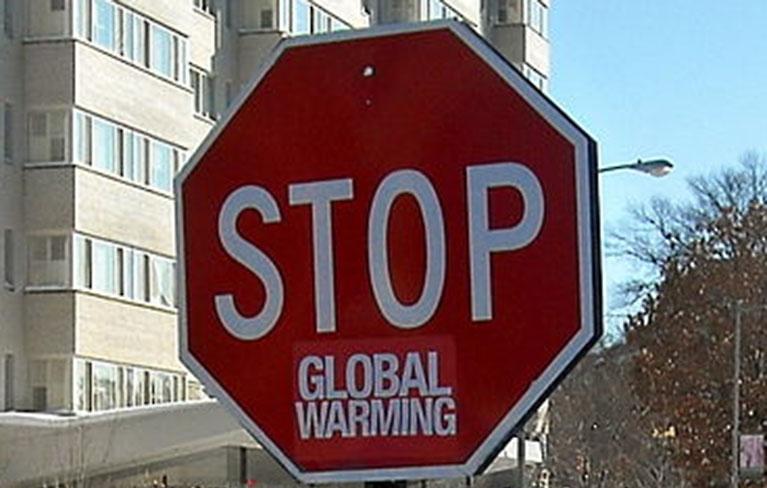Glawe: The price of climate change denial
A report released last month by the Intergovernmental Panel on Climate Change hopefully refocuses our concern toward a more pressing issue: climate change.
October 28, 2013
In a land full of economic woe, it is easy for something like a fresh climate change report to quickly lose public interest. With the help of a drama-hungry media, crises such as the debt-ceiling debacle easily cloud out all other matters. The report released last month by the Intergovernmental Panel on Climate Change hopefully refocuses our concern toward a more pressing issue: climate change.
The findings, an unparalleled synthesis of thousands of reviewed scientific papers — this line cannot be emphasized enough — concluded that, indeed, current climate change is still the fault of man. The analysis claims that it is “extremely likely” that humans are responsible — around a 95 percent probability.
Unsurprisingly, the report faced purely subjective opposition instead of the more useful objectiveness embraced by the scientific community. The usual suspects of climate change denial voiced their opinion, providing the public with easily ridiculed statements, such as that of our own representative Steve King, who seems to think that climate change is “more of a religion than a science.”
I suppose I too have fed the fire, as I’ve often caught myself asking someone if they “believe” in climate change or if they “believe” in evolution. In what other areas of science would one feel compelled to associate the subject with a belief? Perhaps in this respect, the deniers are winning.
While it is easy to poke fun at people who may not understand the science behind climate change, the easy dismissal of refined evidence should scare us. Currently, around 58 percent of congressional Republicans refuse to accept the idea of man-made climate change. The Right has certainly become notorious for its blind opposition to these scientific findings, but the denial crosses party lines.
Nonetheless, this issue is nonpartisan and the substance of the matter is all-inclusive. In a Google+ Hangout with President Obama, author John Green lamented our past and current inaction, and he inquired into the difficulty of drilling through ideology to find policy. President Obama, in the most politician-like way, noted his achievements in enacting stricter fuel standards and legislation.
It is feared that these efforts may be too little too late. Perhaps the propaganda machines have polarized the issue enough to where no further progress will be made.
Climate change is global, and its effect will have a substantial impact on all segments of the international economy. This issue does, after all, encompass the entirety of the Earth, not just one country or continent.
That is the precise reason why the matter should be nonpartisan — we are all included as both the perpetrators and the victims.
To gain any progress, there must first be at least an agreement that there exists a problem – climate change is actually happening and global temperatures are trending upward. There is, thankfully, a general agreement that climate change is underway (with the exception of a few stragglers dragging their feet).
Logically, the next step is to agree that humans are the primary contributors to current climate change. That is where we run into problems.
Normally, the baseless and misapprehended claims made against the evidence of man-made climate change do not warrant a response, and indeed they have run their course. However, climate change is the one issue where it is becoming increasingly vital that scientists “step up to the plate” and defend their findings. Unlike defending evolutionary biology or cosmology, scientists must defend their evidence of man-made climate change because it represents the immediate fate of our world – a fate that we can determine.
The evidence is not anecdotal, cherry-picking, or exclusive. Data in support of climate change spans many scientific fields — change in migratory patterns, water temperature changes, etc. — which nevertheless reinforces the understanding that this matter affects everyone and everything.
Even more so, there are no political points to be won from the discussion, and it’s unfortunate that supporters of green technology and alternative fuels are monopolized on the left side of the political spectrum.
One YouTube commentator reminded me that I will most likely still be alive in forty to fifty years, which is right around the time that Earth’s population will peak at ten billion people, and we’ll begin to experience the truly significant effects of climate change.
What is saddening is that we are failing miserably to break down the partisan walls that hinder progress, and that places us on the track toward an unnecessary end.
With each passing day, the situation grows more dire. As we inch our way toward irreparable damage, the true price of denial will begin to manifest. Upon arrival, the denizens of Earth will look back upon this time and lament our failure, just as we “believers” lament today.

















